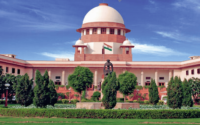The 50% Reservation Ceiling: Protection or obstructive Equality
This article is written by- Surbhi Kumari from Amity University, Patna.
Abstract
The issue of reservation has continuously been contentious in reference to the idea of equality enshrined within the Constitution. The present reservation policy hasn’t solved several problems like non-applicability of the creamy layer within the case of SCs and STs, casteism, reservation within the promotion within the case of employment, wealthiest persons inside SCs, STs and OBCs, and to incorporate additional castes in backward categories underneath political pressure. This text intends to analyse the provisions of the Constitution of India vis-à-vis reservation policy; the 103rd change affects the equality principle, breaches most of the limit for reservation and violates basic structure belief. To analyse the judicial pronouncements and implementation of the judicial pronouncements of reservation policy through Government Policies and to recommend the modifications within the reservation policy and thereby making certain equality.
Keywords: Reservation Policy, Constitutional Provisions, Judicial Pronouncements.
Introduction
Indian Society has been delineated as a “compartmental” society. Underneath it is a massive range of teams maintaining distinct and numerous types of life. Sovereign Asian country determinedly and unambiguously embarked on the countervailing discrimination principle with a powerful justification that it works as an efficient mechanism to offset the historical additive deprivation toughened by lower castes. The reality is that Indian social structure has, for hundreds of years, committed social and economic injustices by the so–called higher castes on the lower castes who are denied equality within the chance and therefore the facilities of the society. The framers of the Indian Constitution incorporated into the Constitution provisions for countervailing discrimination programmes. The policy of initiatives employed in India to offset the inequalities of society could be a policy of reservations. Within the annals of Asian country history, it’s evident that some categories of individuals measured backward because of historical injustice and exploitation. Therefore, the notion of ‘reservation’ has been enshrined within the Constitution of Asian country specifically in Article 15 (4) &16 (4).
Meaning of “Reservation”
Reservation by definition entails some preference for the deprived UN agencies could otherwise lose in Associate in Nursing open competition with people who square measure lucky to possess an honest education, coaching and upbringing. It’s intercalary within the Indian Constitution as a positive way to produce a chance to the Backward categories to boost quality within the service. However, whereas providing advantages of the policy of the “reservation”, a stable equilibrium is required to stay between justice towards the Backward categories, equity for the forwards likewise as potency for the whole system. The idea of the “reservation” is incredibly wide. As a generic idea, the reservation is Associate in Nursing anti–poverty live. According alternative read, reservation is simply providing a right of access however it’s not a right to redress.
History
India was a country with a very rigid caste. The conventional Indian society had witnessed the luxuriant growth of stratified movement embodied inside the institutions of grouping and caste. The legal origin of Reservation Policy in India began with lying down of the govt. of India Act, 1919 that came throughout war I. Once itinerant the whole Indian provinces, their representatives planned for combining separate electorates and reserving seats for depressed classes and demand for the broader franchise. The Poona written agreement of 1932 came into force whereby the Prime Minister Macdonald declared the communal award where separate representations were to be provided to Muslims, Sikhs, Christians, Indians and Dalits’ were appointed seats.
Case law
In the case of State of Madras v. Champakam Dorairajan , the Court struck down the order of the Madras Government that had fastened the proportion of scholars of every community of the backward categories which will be admitted into the medical and engineering schools go by the authorities, and therefore the Court command that the reservation of seats for the backward categories within the skilled colleges is offensive of the equality principle enshrined in Article fourteen. This judgment resulted in insertion of clause (4) to Article 15.
50% Rule
The Supreme Court in Indra Sawhney vs.UOI capped the limit of the reservation to 5 hundredth. With regard to the 5 hundredth rule, it was completely commanded by the Supreme Court that Article 16(4) is Associate in Nursing exception to equality of probability one thing on prime of 5 hundredth would imply the advantage of limitation. In 2006, a difficulty was raised before the Supreme Court that whether or not the 5 hundredth rule could also be a neighbourhood of the essential structure or not. Throughout this case, the court noted that “the ceiling limit of fifty, the construct of creamy layer, sub normality and inadequacy of illustration unit of measurement all constitutional wants whereas not that the structure of equality would collapse”.
Conclusion
The idea of providing the reservation to the socially and educationally backward classes inside the Constitution was for some ten years but at the will of ruling organisation inside the system, but this era kept it extending and it made people to promote for the interests of backward classes with the foremost aim of getting votes and to be in power.
Curated by Athira Albert of Kristu Jayanti College of Law, Bangalore.


